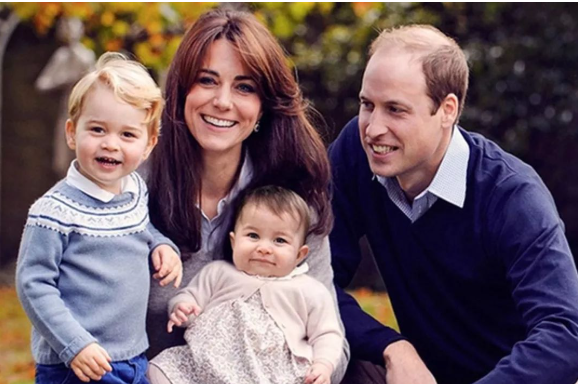
From the British Royal Family to Bill Gates: Why Visionary Families Reject Happy Education
There’s a popular image of modern parenting that prizes happiness above all else: a childhood cushioned from struggle, schedules that maximize play and joy, schools that prioritize emotional well-being and self-esteem. Call it happy education. For many families—especially in the West—this approach has obvious appeal. But look at how a number of high-achieving, publicly influential families actually raise their children, and a different pattern emerges. Whether in palace wings or by the lakes of Seattle, some parents explicitly favor structure, challenge and a strong sense of duty over the pursuit of uninterrupted happiness.
This article explores why that is. It’s not about being cold or indulgent; it’s about a consistent value judgment: to prepare children to lead, govern, innovate and steward institutions that outlive them, these families often prioritize character, competence and contribution. Below are the philosophical reasons, the practical methods, and a balanced look at the costs and benefits.
What people mean by “happy education”
Before we dive in, let’s clarify terms.
Happy education emphasizes:
- Emotional well-being as the primary educational goal.
- Play-based learning, low-stakes assessment.
- Avoidance of pressure, stress or public failure.
- A child’s subjective happiness as the metric of success.
Visionary-family education (the contrast) tends to emphasize:
- Duty, responsibility and public-mindedness.
- Skill mastery, rigorous standards and real-world accountability.
- Early exposure to responsibility and service.
- Preparedness for leadership and stewardship.
These are simplified categories—many parents mix elements. The point is not that one is morally superior, but that certain families make a conscious trade-off: they accept short-term discomfort to cultivate durable capabilities.
Why influential families often prefer the harder path
1. Duty and stewardship over comfort
Families that manage public institutions—royal households, major foundations, multigenerational enterprises—commonly teach stewardship as a primary value. The child must understand that personal comfort is secondary to obligations toward community and legacy. That ethos favors disciplined training over a childhood curated solely for happiness.
2. Preparing for public scrutiny and responsibility
High-profile lives are rarely private. Leaders face scrutiny, hard choices and moral trade-offs. Raising children who can tolerate criticism, make difficult decisions, and carry through ethically fraught duties often requires purposeful exposure to responsibility from an early age.
3. Mindset: resilience and agency beat transient satisfaction
Happiness that depends on comfort is fragile. Visionary households often privilege agency—the ability to act effectively in the world. Agency is built through challenge: difficult tasks, honest feedback, and learning how to recover from failure.
4. Talent maximization: mastery requires hard work
Excellence in fields that shape society—science, governance, philanthropy, medicine—requires deep practice and often long periods of focused effort. Families who want their children to be world-class contributors may accept short-term pressure as necessary investment.
5. Social signaling and role modeling
How a family educates its children sends signals to stakeholders: staff, institutions, partner organizations. A visible culture of discipline and public service reassures collaborators that the next generation will be capable stewards.
Practical methods these families use (not “no fun”—but purposeful structure)
What does this look like in daily life? Below are recurring practices—adaptable and humane—often found where stewardship is a priority.
Structured routines with meaningful chores
Children are given real responsibilities—caring for animals, managing a small budget, or helping run a family project. Tasks are not busywork; they are contributions that have visible consequences.
Apprenticeship and mentorship models
Instead of abstract praise, young people work alongside skilled adults: shadowing doctors, attending board briefings, apprenticing with artisans or scientists. This connects effort to competence.
High expectations + clear feedback
Mistakes are treated as data, not as indictments. Honest feedback and standards (graded on performance, not only effort) create clear paths for improvement.
Emphasis on problem-solving and curiosity
Rather than insulating children from difficulty, parents frame difficulty as an opportunity to exercise agency: “What can we try next?” The focus is on iterative problem-solving and intellectual toughness.
Service and civic duties
Regular public-facing responsibilities—volunteer work, small governance tasks, or participation in charity administration—teach the ethics of service and the mechanics of organized help.
Controlled risk and failure
Children are allowed to fail in safe, educational contexts (public presentation flops, small entrepreneurial losses). These are deliberate trials where the stakes are real enough to matter but not catastrophic.
Two quick archetypes: what this looks like in practice
The public-service household (e.g., royal family ethos)
In institutions maintained for a nation, children are socialized into roles where ceremony and duty matter. Training emphasizes protocol, public speaking, exposure to charitable work, and an ingrained sense that private comfort is subordinate to public obligation. The goal is not to make children unhappy—far from it—but to help them develop the temperament to carry national responsibilities with composure.
The philanthropic-entrepreneurial household (e.g., wealthy founders)
Families with philanthropic missions or innovation-led careers often emphasize competence and impact. Children are encouraged to learn deeply—science, math, languages—and to understand organizational mechanics. They might sit in on board meetings, meet grantees, or run small charity projects. The education is intentionally purpose-driven.
Bill Gates as an illustrative example (not a prescription)
Public figures occasionally exemplify these patterns. For example, families of tech founders and philanthropists often publicly emphasize deep learning, grit, and exposure to civic problems. The emphasis is on long-term contribution—solving complex public-health or technological challenges—rather than on purely hedonic childhood comfort.
That doesn’t mean these families reject joy. It means joy is often linked to mastery, curiosity and communal impact: the thrill of solving a hard problem, the satisfaction of building something that helps others.
The counterargument: the case for happiness-first approaches
It’s important to be fair. Critics of rigorous, duty-focused upbringing make several strong points:
- Mental health risks: excessive pressure can increase anxiety, depression and perfectionism.
- Loss of childhood spontaneity: regimented lives can stifle creativity that blossoms in play.
- Privilege blind spots: demanding resilience from children can ignore unequal starting points (trauma, socioeconomic barriers).
- Overfitting to legacy values: expecting children to inherit a mission they didn’t choose can cause resentment.
Balanced educators avoid extremes: they build resilience while protecting emotional development and autonomy.
Where balance looks best: a synthesis
Many successful families blend both approaches. They build structure and responsibility into a warm, responsive environment. Key features of that synthesis:
- Choice within structure: children have agency to choose meaningful projects within a framework of expectations.
- Psychological safety + accountability: secure attachment allows honest feedback without shaming.
- Play as training: play is not frivolous—it builds creativity, cooperation and risk tolerance.
- Explicit values conversation: families name the values (service, honesty, learning) and invite children into the reasoning behind them.
This model recognizes that long-term flourishing needs both competence and well-being.
Practical takeaways for parents who want capability and happiness
- Give real responsibilities early. Let chores, small budget management, or community projects be meaningful—not symbolic.
- Teach the lesson of “learning from failure.” Normalize failure as an expected step; debrief it for concrete growth.
- Pair challenge with support. High standards should come with coaching, time, and emotional validation.
- Connect work to purpose. Kids who see the social value of their effort are more motivated and less likely to feel that pressure is punitive.
- Protect free, unstructured play. Unstructured time fuels creativity and reduces burnout.
- Model service and curiosity. Children imitate adults; show them how you handle responsibility and setbacks.
Final thought — raising adults for a complicated world
The debate between “happy education” and a more rigorous, duty-oriented upbringing isn’t a zero-sum game. Visionary families often reject an education that privileges immediate comfort because they’re thinking in generations: institutions, public goods and scientific challenges don’t reward comfort; they reward competence, endurance and moral clarity.
If you’re a parent, the useful question is not whether you should choose happiness or rigor, but how you can cultivate both: resilient competence wrapped in emotional safety. Raise children who can find joy in doing hard things—and you’ll prepare citizens and leaders who can sustain not just their own happiness, but the well-being of others.
Suggested tags for WordPress: parenting philosophy, education models, resilience, leadership upbringing, family values
Would you like this turned into a two-part series—Part I: Philosophies and Evidence; Part II: Practical Micro-routines & Scripts for Families? I can also craft a short downloadable “Responsibility Starter Kit” with age-graded chores and coaching scripts. Which would help you most?


